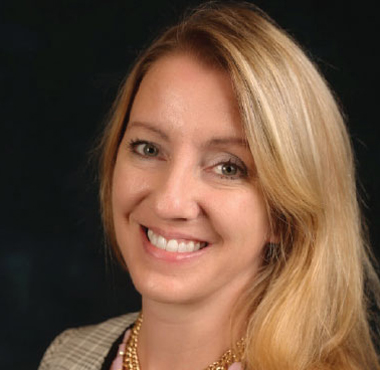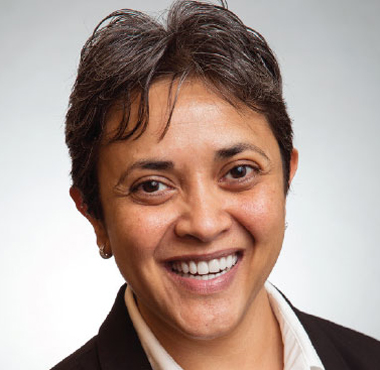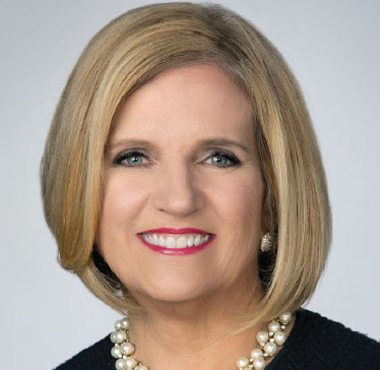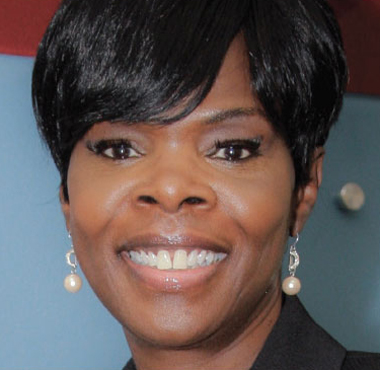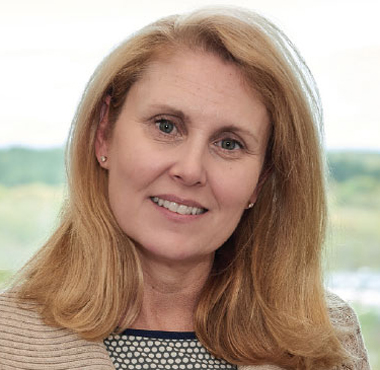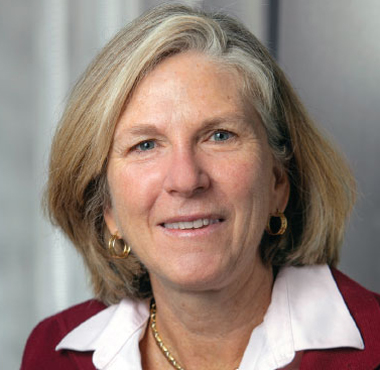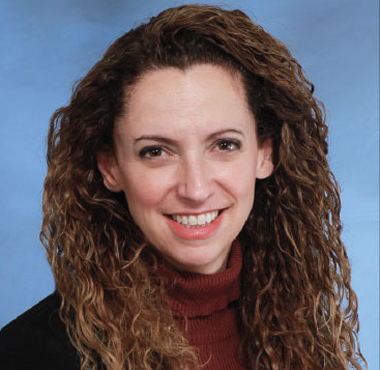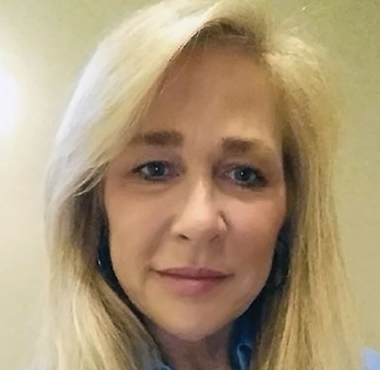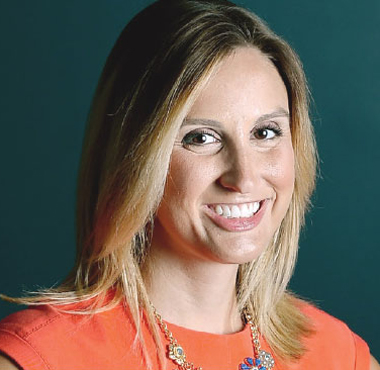2018 Security Leadership Issue: The Rising Role of Women in Security
In the historically male-oriented security field, many women are successfully advancing to leadership roles.

One was inspired by her FBI agent father, another started in customer service and another wanted to be a doctor. Whatever path they took, and how they got there, today, they are all successful women in the security industry, with titles such as Vice President, CSO, Director of Global Security and more.
I had the pleasure of speaking with nine female executives who are succeeding in security leadership roles:
- Janet Fenner, Director of Business Development, Dahua Technology USA
- Christina Luttrell,Senior Vice President of Operations forIDology
- Amy Lyons, Vice President Corporate Security and CSO for Bristol-Myers Squibb Company
- Tammi Morton, Head of Global Security and Resiliency for HP, Inc.
- Hemma Prafullchandra, CTO and EVP of Product at HyTrust
- Lisa Quinn, Vice President, Corporate Global Security for Thermo Fisher Scientific, Inc.
- Jane Rhodes Wolfe, Group Vice President, Corporate Physical Security for Charter Communications
- Shirley Taylor, Vice President, Global Chief Security and Safety Officer for Henry Schein, Inc.
- Amy Vigneux, Director, Sustainable Building Solutions for ASSA ABLOY
A historical look at the physical and IT security industry shows a perception that industry professionals are predominately male and former military or law enforcement. In addition, Frost & Sullivan’s “Women in Security” study reveals that women represent only 10 percent of the security workforce. Women have some attributes that are clearly stronger than men in certain areas, and have much to offer in security leadership positions.
What are the challenges and barriers that women face with a career in security, how are they mentoring male and female executives, and what can be done at the college and K-12 levels to garner interest and a career in the security industry?
Traditional and Non-Traditional Paths
The background for Christina Luttrell,Senior Vice President of Operations forIDology, may differ from other female executives that took a more traditional path. Not initially having an option to go to college, she began her career in manufacturing. After several years in that industry, she joined ChoicePoint in its marketing department. She moved up the ranks from marketing to product manager while also earning a college degree and raising two adopted children.
During her time at ChoicePoint, she discovered a love for technology and data. She joined IDology soon after adopting a third child, and Luttrell was quickly given additional responsibility for the client solutions area.
Since joining IDology, she has assumed increasing executive responsibility and today leads the operations of IDology, overseeing client solutions, product marketing and fraud. Under her direction, the company has increased its customer base from a handful of customers to more than 1,000 and achieved a 51-percent compounded annual revenue growth rate over the last 10 years.
Holding a leadership position in a technology industry that has been highly male-dominated can create numerous challenges for any female executive.In the fast-paced technology market, companies rely on performance and personal relationships where confidence and trust matter, and Luttrell has a unique ability for developing these relationships with other technology executives and their teams.
Hemma Prafullchandra is CTO and EVP of Product at HyTrust, but she originally wanted to be a dancer. Or a doctor. “I just knew that I wanted to succeed, and I had dreams,” she says. She was born in Zambia and grew up in the UK as the youngest in a family of five children, and her parents were supportive of her dreams.
When she was in high school she was drawn to computer science. While at University College London, she was the only woman in her program of Computer Science with Electronic Engineering. “Yes, there was a bias towards women in computer science, but it was my passion,” she says.
For many female security executives, a current role in corporate security is after a successful career serving the United States via the armed forces, the FBI, Secret Service or other law enforcement.
Before her corporate security career, Jane Rhodes Wolfe, GVP, Corporate Physical Security for Charter Communications, served in the FBI in investigating criminal matters, international terrorism and responding/managing critical incidents. “The skill set I developed included focusing on risk, identifying threats, crisis communication and commitment to serving others,” she says. “In each FBI assignment, I remained focused on the impact on innocent people – it may have involved losing their life savings, the failure of a business, death or serious injury from terrorism.Throughout my FBI career, teamwork and a sense of mission were critical to success.”
In her role at Charter, she is responsible for the physical security of our nearly 100,000 employees, customers and facilities across 41 states.“Each day I use my FBI experiences to evaluate and respond to incidents involving violent crime, domestic violence, illegal drugs, theft and fraud,” she says. “Our team responds to reports of all types of threats, criminal and suspicious activity with a focus on employee safety and mitigation.We operate a 24-hour watch center, which serves as a central reporting and incident management function, using many of the same principles used by the FBI and law enforcement – focusing on risk.In addition, we monitor current events, analyze social media, assist law enforcement and inform leadership of critical matters – those functions follow the same model of many FBI functions.”
While in college, Shirley Taylor, Vice President, Global Chief Security and Safety Officer for Henry Schein, Inc., majored in Criminal Justice and was a member of the Army ROTC program. She graduated with honors and received her commission as a 2nd Lieutenant in the Army Military Police Corps. She achieved the rank of Captain and served in serval capacities, as a Platoon Leader, Customs Executive Officer, Assistant Staff Officer, Physical Security Officer and a Company Commander of a Military Police Company. Taylor was the first female and first African American to serve as the physical security officer in charge of the Underground Pentagon.
After serving in the military, Taylor transitioned to Corporate America and leveraged the comprehensive leadership training and skills that she acquired in the military. “I was fortunate and prepared to hold several leadership positions in manufacturing operations and Global Security and Safety for several Fortune 100 companies, including J&J, Nestle, Campbell Soup, PepsiCo and Google. “In December 2014, I joined Henry Schein, Inc. as Vice President, Chief Global Security and Safety Officer, where I lead a great team of more than 65 security professionals around the world. I am responsible for ensuring the safety and security of 22,000 team members, in 34 countries, and over 450 facilities globally.”
Taylor says that she’s at her current level by having “a strong work ethic, perseverance and core values based on respect that has allowed me to gain the trust from my direct reports as well as my colleagues and senior leaders. I often say it was preparation meeting opportunity. I never shied away from stretch opportunities, and I always focused on the role I was in and made sure that I left it better than I found it.”
When Lisa Quinn, Vice President, Corporate Global Security for Thermo Fisher Scientific, Inc. was growing up, she says she always had an interest in what her father, an FBI agent, was doing. Her father introduced her to a female colleague at the Secret Service, who Quinn looked to for career advice. “She was someone who was a role model, and she helped me to get started with the interview process for a career with the Secret Service. She taught me that early in your career is the time to listen and to learn, to not try to prove yourself, but to be a willing partner.”
Quinn credits the tight-knit family of the Secret Service for assisting with her career. “It’s important to find someone, whether it’s a man or a woman, who is willing to teach you,” she says. “While in New York in the USSS, I found support from peers and my supervisors who gave me great opportunities. There are many ways to manage your career, but having a touchpoint, someone who you know who has your back, is important.”
When Amy Lyons was a young girl, her uncle thought that she’d be a good special agent for the FBI. “I guess he thought I had common sense and good judgment, along with good interpersonal skills,” says Lyons, who is Vice President Corporate Security and CSO for Bristol-Myers Squibb Company.
After college, she was hired by the Drug Enforcement Administration as a Special Agent, where she spent four years before moving to the FBI in various roles for 21 years. “In the DEA only three percent of the agents were women,” she notes. “I rose within the ranks within the FBI and eventually was the Special Agent in charge of the Baltimore field office, ultimately being named an Assistant Director of the Inspection Division. More than six years ago, I was hired at Bristol-Myers Squibb.”
“Prior to my arrival, there were never any women in Corporate Security,” Lyons adds. “My manager, the General Counsel, is a diversity advocate and recognizes the business case for creating diverse teams. I, too, recognize that through diversity we become more insightful and effective. I have deliberately hired women into different roles within the organization, in addition to people with different racial backgrounds, because we have to reflect the people we serve. To best serve the company and our most important assets, our people, we need to reflect those individuals.”
Touchpoints and Mentoring
Taylor says she was fortunate throughout her military and corporate career to have mentors. “My first and most influential mentor was Army Colonel B. Hendricks. He was tough, highly respected, displayed courageous leadership and led by example. He instilled in me that I was personally responsible for showing up every day, leaving things better than I found them, and – most importantly – ensuring the safety and duty of care for every soldier that I was leading. This lesson has prepared and guided me throughout both sectors. Throughout my career, I have had great sponsors that recognized my potential and recommended or offered me great opportunities that I may not have been otherwise considered.”
At IDology, Luttrell has focused on helping other women build their careers. Today, IDology’s workforce is approximately 45-percent female, with many women in key leadership positions. Mentoring other women to succeed in their technology careers has a special place in her heart. She runs the mentoring program at IDology, dedicated to the success of all employees, while also focusing on teaching women how to better succeed not only at IDology, but in the technology industry as a whole.
While with the Secret Service, Quinn had the opportunity to mentor fellow agents, asking “What’s the next step in your career? How can we help you prepare?”
“In law enforcement there was always a family element: we wanted to know what’s going on with people at home, just to make sure that we are providing the support for them to be successful in their career and their lives,” she says.
Janet Fenner, Director of Business Development, Dahua Technology USA, began her career working within the security industry as an art director. Through company acquisitions and sheer hard work, she quickly transitioned into marketing roles. Her talents were recognized by Frank DeFina, a highly respected security executive who worked at companies such as Panasonic, Samsung and Hikvision.
“I interviewed with Frank for 12 minutes, and he offered me the job at Samsung,” Fenner explains. “And I was ready for a new challenge. But Frank was definitely the biggest mentor in my career because he kept me right at his side. Every meeting he went to he took me with him, just to follow his lead, to learn and to see how he dealt with several different facets of the industry. I was extremely fortunate to have had that. As far as being a woman in this industry, if you can find someone who can help mentor you, whether they’re in your company or not, that’s probably the biggest aspect, as you’re never too old to learn anything.”
“I just kept pushing forward,” Fenner adds. “Frank opened a door for me, but I just kept putting myself out there, putting myself in positions where I could constantly learn. I used my marketing skills to create a network and a relationship with the entire industry.”
Taylor says she’s been fortunate to identify and mentor emerging female leaders who are often overlooked in the male-dominated security industry. “Through my networking and professional associations, I make it a point to identify and advocate for the advancement of female executives who have the passion and drive to create, implement and manage broad security programs and operational initiatives,” she says. “I share with them it is important to do the required work and acquire the technical skills that will allow you to be ready for that opportunity when it presents itself. It’s also critical to gain the reputation of being a subject matter expert, a great leader and a trusted and valued contributor.”
Tammi Morton, Head of Global Security and Resiliency for HP, Inc., began her career as a Special Agent with the Naval Criminal Investigative Service. After almost 10 years, she was recruited to a regional security manager role with Amoco Corporation. She served as the Director of Security for Bill and Melinda Gates, with Merck as a security manager, and then was recruited by the HP CSO, as the Americas’ Director of Security, before being named Head of Global Security and Resiliency at HP after the company split.
Morton had mentors, as well, noting that her federal law enforcement colleagues and supervisors were “integral in my development and growth. I was offered opportunities and encouraged to broaden my skillset. For example, I became a certified firearms instructor as well as a hostage negotiator. Had it not been for that professional support, I may not have pursued these collateral duties. In the private sector, my managers at Amoco, Merck and here at HP have similarly guided me.”
“I think it’s our duty to give back,” she adds, “and to build succession plans and to help pave the path for others. As a company, HP supports diversity, including celebrating and supporting women in leadership roles. I have been fortunate to have opportunities to mentor women who were seeking to expand their skills and experience, but didn’t necessarily know how to achieve that growth. I also believe that opportunities in corporate security don’t always require a law enforcement background, as success in this field can be achieved through education, sponsorship, and focused application.”
Prafullchandra notes that beyond mentorship, sponsorship is important, because it’s someone who’s lending their credibility and their reputation to advance you. She says: “And that could be anything from a trusted introduction to someone who speaks volumes about you. Women typically don’t ask about sponsorships, and men don’t think to ask them, whereas men will ask men all the time. But a sponsorship could help you advance in your career.”
Raising the Profile
To raise the profile of women in security, it’s been said that we must move away from initiatives focusing specifically on women and recognize both male and female styles.
Wolfe says she likes to “Stay away from group-think and seek varied backgrounds of team members. I have intentionally not hired all FBI alums as I know how they think, but instead have built a team of former executives from the USSS, U.S. Marshals, ATF, NYPD, Pennsylvania State Police, universities, local law enforcement and corporate security functions.The combined and varied set of experiences provides a breadth of perspectives and business practices.Our team has taken the best from our previous careers, and applied those skills to keep Charter secure.”
“I never played the ‘girl card,’” adds Wolfe. “Nor did I try to be ‘one of the guys.’ When I was in the FBI, I just tried to be a great agent. I’m shorter; I’m not a physically imposing person, but at times my demeanor could be imposing if I wanted to. Regardless of men, women or race, just make sure that you can communicate. There can ever be enough [STEM programs] that will ever meet the demands, but I know for our program within Security, just like an FBI agent, your number one skill is your ability to communicate with people. We can teach you the security apparatus. For our entry-level employees, I’ll take anybody that wants to learn and that has strong interpersonal communication skills.”
“I had mentors and coaches who provided guidance and helped me grow as an individual,” says Lyons. “They also created opportunities for me. That’s a big piece to this whole story: unless opportunities are given to people, it is very challenging to reach one’s full potential. Some people may be more inclined to hire people like them, so there has to be a conscious effort put into diversity, like my boss did here at Bristol and like I’m doing with my team. It has to incorporate women, race, religion and orientation. We really need to make conscious decisions to embrace a diversity of thought.”
Amy Vigneux, Director, Sustainable Building Solutions for Assa Abloy, started her career in customer service. “I was 23, and that’s one of the least exciting roles for someone, after having lofty ideas of what happens after you graduate college. But there was a lot of room for growth.”
Her career at Assa Abloy did grow, eventually moving into marketing and sustainability. “My career has morphed because the organization allowed me to push for various opportunities.”
Vigneaux is also quick to give credit to a colleague who sponsored her. “This person was always keeping an eye out for me, and does to this day. One of my managers told me that my mentor does not have to be a woman and doesn’t have to be one single person. I found it valuable to pull different sources of inspiration from multiple people. You can learn to take a few steps back and absorb those personalities and their reactions to certain situations, which is always helpful.”
Many corporations actively recruit from colleges and universities, and Lyons believes in recruiting from specific women’s colleges or business schools that have programs for female executives. “We need to create opportunities for those who don’t normally have them in the security profession,” she says. “While recruiting people who have law enforcement backgrounds is beneficial, I have also hired people from other business units within a company. In this way, we have expanded our business network and understanding of business functions. We are security, but we’re business enablers that mitigate security risks for the company. So by hiring people from HR or Compliance, our team has expanded our business knowledge and enhanced our ability to add real value to the business.”
Morton argues that opportunities to influence should start at the K-12 level to educate younger girls about roles in corporate security. “Young girls have many options in today’s progressive society, and it’s our duty to help them take advantage of it, lead them to a path for success, and show them they are capable. I think the younger generation carries fewer stereotypes than we did growing up. There’s a huge opportunity to build a pipeline, and now is the time. It’s also about empowering them.”
Morton adds, “Sometimes we limit ourselves when we don’t pursue opportunities, believing we don’t have all the skillsets for a certain role. I have a 75 percent rule: If I have 75 percent of the skills and experience for a role, I am capable and able to learn the rest if just given the chance. You don’t have to check off every box. It's important to take risks and then seize the opportunity. And then the rest is on you to perform and produce great results.”
Prafullchandra suggests programs in corporations where girls can shadow a CTO or security executive. “Being able to shadow and spend a day in the life of a CTO, or a programmer, or a CFO would really expose the girls to the space and dispel the myth that cybersecurity’s a boring field and requires a certain skill set. If you’re curious and inquisitive, you’re ideal for our field.”
Career Advice
What additional advice do these female executives offer for men and women who seek to have a career in the security industry?
According to Taylor, “In reaching any goal there are challenges to overcome, and within the security industry, this also comes with preconceived perceptions or stereotypes about the role and responsibilities. For me, I’ve tried not to let that interfere in my beliefs or my ability to achieve the responsibilities I’ve been given and those I’ve earned. I learned very early in my career as a female and a security executive that most successful individuals in this industry are recognized and respected because of their strong leadership, technical competence, courage and commitment. These are the attributes I chose to focus my attention and model my behavior on. I always treat others with respect, and it is reciprocated.”
Adds Quinn, “Sometimes it’s coming out of your comfort zone. When you do that, you will meet people and expand your skill set. I’m excited about working at Thermo Fisher Scientific, because I go to manufacturing sites and am told about what the team is doing to enable our customers to make the world healthier, cleaner and safer, which is our mission. Our employees are my constituents, and I need to keep them safe. The great thing about the security industry is that we’re not competing with each other so we share information.”
“My advice is to get rid of the idea that as women, we’re supposed to be treated differently,” Vigneaux says. “Of course there will be setbacks, but we don’t need to be treated differently. There’s been many times where we’re underestimated. And I love when that happens, because you really have a chance to shine. It’s also a wonderful opportunity to show younger generations that you are confident in your craft, and what differentiates you from the man standing next to you is not your gender. Every day we’re building this next generation of female leaders, whether we realize it or not. And that could be verbally, or nonverbally or just by our integrity.”
Fenner is on the steering committee of the newly created Women in Security Forum, which was created by the Security Industry Associationto support the participation of women in the security industry. Through programs, professional development and networking events, the committee will engage members, both men and women, who share this goal.
“There’s a position for everyone in the security industry,” says Fenner. “The industry is super exciting in regards to how technology is driving it. It’s just a matter of how you position it or how you look at it.”
“The Security Industry Association was a big part of my success, too,” Fenner adds. “I always saw it as just a huge organization, and asked, how do I get myself involved in it? Ultimately, it was just a matter of taking little steps at a time and trying to offer my assistance through committees. It really does help you become better at your job because you become better connected, and you become a vehicle to help drive your company forward. The more you lend your hand and the more that you network, the further you will get in this industry.”
Adds Prafullchandra: “We tend to always look at our experience and capabilities at a given point in time. But I say take the plunge. Don’t be afraid to take that plunge given your past. You know you have the ability to learn, and you will exceed if you find something that is of interest. Your passion has to lie there. In my case, my passion is security.
“And don’t undermine yourself,” Prafullchandra says. “Women tend to do that. If you are responsible for a function, then you know far more than that other person because they’re not in your function, right? Own it! Because people will try to undermine you or dismiss you. And work hard. Results and performance speak volumes.”
Looking for a reprint of this article?
From high-res PDFs to custom plaques, order your copy today!
